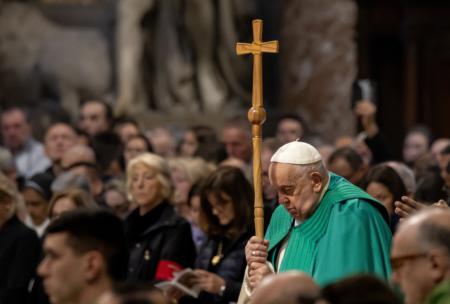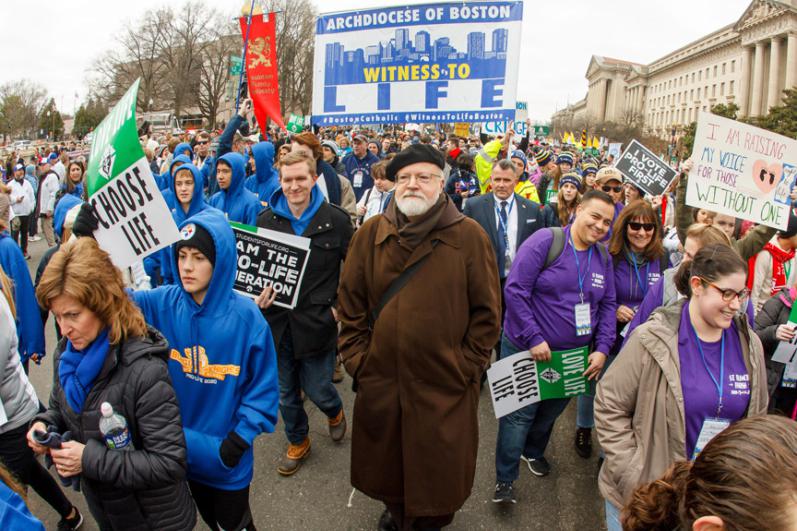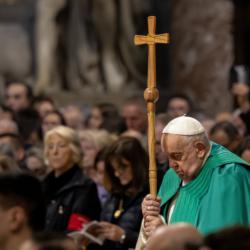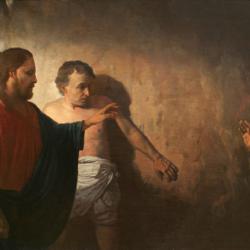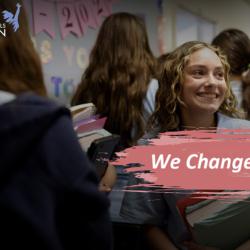Cardinal O'Malley's statement on overturning of Roe v. Wade
The following statement was issued by Cardinal Sean P. O'Malley on June 24, 2022, in response to the Supreme Court's ruling in Dobbs v. Jackson Women's Health Organization, which overturned the court's 1973 Roe v. Wade decision.
For all of us who have spoken, written, worked, marched, and prayed to reverse Roe v. Wade, today's Supreme Court's decision in Dobbs v. Jackson is deeply significant and encouraging. This decision will create the possibility of protecting human life from conception; it calls us to recognize the unique burden faced by women in pregnancy; and it challenges us as a nation to work together to build up more communities of support -- and available access to them -- for all women experiencing unplanned pregnancies.
During the past half-century, as the abortion debate continued, the Catholic Church has often been accused of imposing a religious belief on our pluralistic society. It is indeed the case that, when addressing the Catholic community, the Church has used both religious and moral arguments to oppose abortion. But when engaging the wider American civil society, elected officials, and our legal system, the Church has defended human life from its inception as a matter of human rights. Our continued efforts in advocating our position on the protection of unborn children is consistent with our advocacy for issues affecting the dignity of all persons at all stages and in all circumstances of life. The Church employs this principle of consistency in addressing issues of race, poverty, and human rights generally. It is a position that presents a moral argument as a foundation for law and policy to protect human life.
I welcome the Court's decision, but I do not underestimate how profoundly divisive the issue of abortion has been and will continue to be in our public life. Even more tragic has been the personal suffering of women facing unplanned pregnancies in difficult situations. The Church has consistently opposed the moral and legal dimensions of Roe v. Wade; we also adamantly reject stigmatizing, criminalizing, judging or shaming women who have had abortions or are considering them. Too often isolated and desperate, women have felt they had no other choice. They need and deserve spiritual, emotional, and material support from the Church and from society.
In the Archdiocese of Boston, we have sought, through Project Rachel and Pregnancy Help, to support women facing a crisis pregnancy and women whose lives have been impacted by an abortion. In addition, the Church offers the Lord's boundless mercy and healing to those suffering from the spiritual harms of abortion. In the face of recent statistics indicating an increase in abortions, our pastoral and social support for women will continue, will be welcoming, and will be available to all who need them.
Today's Supreme Court decision begins a new chapter in our legislative and legal forums as the public debates about abortion will not end. Since 1973, there has been continuing opposition to Roe v. Wade's reasoning and its consequences. Those consequences have permeated the political, legal, and social fabric of American life. The radical character of the Roe decision catalyzed some of the deepest reactions and responses to any issue in our nation's history. The public arguments will now shift to the states, the Congress, and the courts. It is my hope that this new chapter may be a time of a different tone and focus in our civic life.
First, we must adopt a wider vision of the multiple threats to human life in our society today. The recognition that human life begins with conception and continues through natural death. All human life deserves moral and legal protection at all times. Protection of life should be comprehensive, not selective. The Church, in its own positions, should reflect this wider vision, and we are called to engage our civil society around this more holistic view of the value and dignity of human life. It is commonly recognized by those on both sides of the abortion debate that conditions of poverty and injustice have been and are today a major factor contributing to abortions. Those who have opposed and supported Roe can and should find common ground for a renewed commitment to social and economic justice in our country.
Second, protecting human life at all times can only succeed if we rediscover the value of civility in discourse, in protest, and in policy advocacy. Respect for life calls for mutual recognition of and respect for our common dignity as persons and citizens. In recent years, the idea of civility and respectful discourse has suffered from neglect, as has the respect for human life. The renewal of both is possible and urgently necessary.
As a bishop and a citizen, I hope and pray we can create a culture that protects the most vulnerable at the beginning of life and at any time life is threatened in any way.
- Cardinal Seán P. O'Malley, OFM Cap. Is Archbishop of Boston
